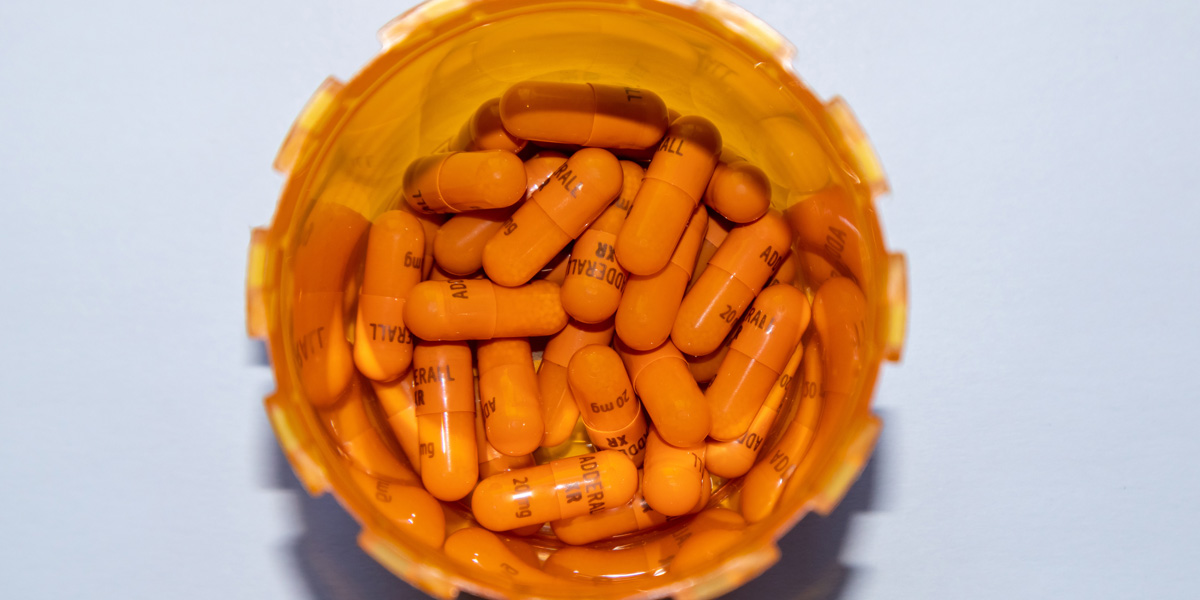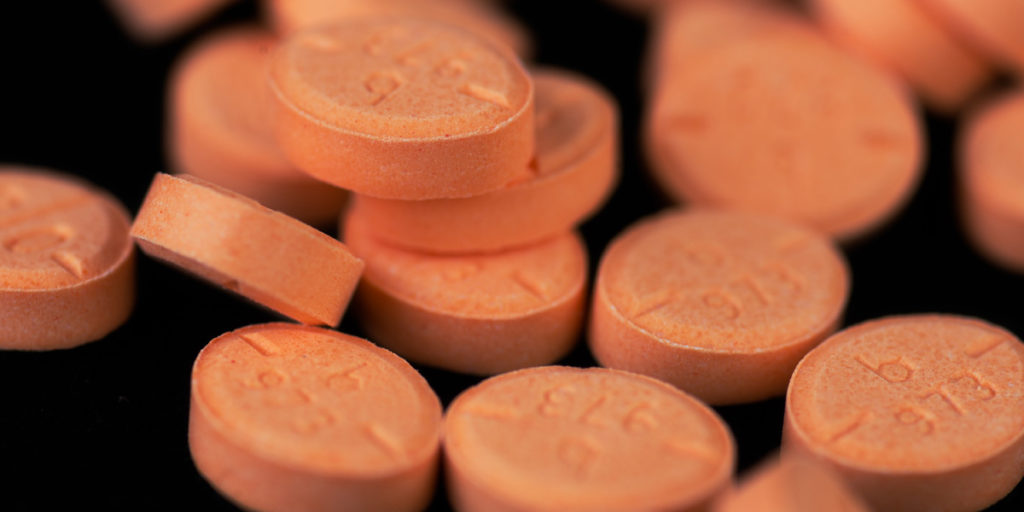Dangers of Snorting Adderall

The side effects and dangers of snorting Adderall vary from improved cognitive performance to sudden death. Snorting Adderall is a faster route of delivery, increasing its effects and resulting in a higher dose. Sadly, this almost guarantees abuse that manifests into dependency and addiction.
Adderall is a central nervous system stimulant consisting of amphetamine and dextroamphetamine. It is prescribed to treat attention deficit hyperactivity disorder (ADHD) and narcolepsy. Yet, Adderall is classified as a Schedule II drug, which means it has a high potential for abuse and is considered dangerous.
Snorting Adderall has increased dramatically in the past decade, with the sweeping belief that it improves performance. In addition, there has been a trend on prescription stimulants, commonly called “smart pills” or “uppers,” with students due to their ability to increase energy and focus. Nevertheless, Adderall abuse is often because of a person’s misconceptions or lack of awareness of its dangers.
What Happens if You Snort Adderall?
Results have shown that snorting and oral administration of Adderall have the same effects, with a profound difference. The difference is due to the method of use. Snorting the drug increases the potency and delivery time of any drug.
There is evidence that the reinforcing effects, which encourage us to use a drug, are more significant when the drug’s effect hits you faster. Therefore, snorting Adderall contributes to enhancing its abuse potential.
Individuals that snort prescription drugs are more likely than those who take them orally to show unstable behavior. Thus, it is typically an indicator of more troublesome drug use.
Why Do People Snort Adderall?
When you snort Adderall, it is absorbed directly into the bloodstream. As a result, it produces a significantly quicker onset of the effects than taking the pill orally. When you take Adderall orally, the effects are felt 45-60 minutes after ingesting it. The effects of snorting appear 15-30 minutes after use.
Because the results from snorting Adderall develop rapidly compared to oral dosing, it is the main reason this method of use has become more popular. For this reason, it has a higher chance of abuse.
Side Effects of Snorting Adderall
Studies demonstrate snorting Adderall produces feelings of euphoria and lowered feelings of tiredness and sleepiness. It also showed to improve vigilance, reaction time, and improved mental performance on simple tasks.
The problem with these associated enhancing effects from snorting Adderall is that they bolster its abuse likeliness. When an individual sees an improvement directly after using a drug, it strengthens the motivation to continue the behavior.
Side effects of snorting Adderall involve:
- Nervousness
- Headache
- Dry mouth
- Insomnia
- Diarrhea
- Constipation
- Nausea
- Weight loss
Some adverse side effects that can be dangerous and should be taken seriously include:
- Slow or difficult speech
- Verbal tics
- Dizziness
- Numbness of an arm or leg
- Teeth grinding
- Seizures
- Hallucinating
- Changes in vision
- Paleness or blue color of fingers or toes
- Pain, burning, numbness, or tingling in the hands or feet
- Unexplained wounds appearing on fingers or toes
- Hives
- Rash
- Itching
- Swelling of the eyes, face, tongue, or throat
- Blistering or peeling skin
- Difficulty breathing or swallowing

What Are the Dangers of Snorting Adderall?
The fundamental danger associated with snorting Adderall is its positive effects on mental function without any noticeable harmful consequence. Also, combining the faster onset of the effects from snorting and the rise of individuals using Adderall this way suggests this method of use has an increased potential for harmful abuse.
In 2005, Health Canada took Adderall XR off the Canadian market for reports of adverse drug reactions such as sudden death, severe heart issues, and mental disorders.
Adderall use is linked to heart attacks and sudden death. In addition, improper dosing and mixing with other substances, such as alcohol, increases the risks of serious cardiovascular symptoms like heart attacks, even without underlying heart conditions. Furthermore, large doses can lead to seizures and psychosis.
Adderall doesn’t seem to raise the risk for abnormal blood pressure or heart rate over a period of time. However, the effect it has on heart rate can be seen years after use.
The dangers from prolonged Adderall abuse may consist of:
- Depression
- Lack of motivation
- Changes in libido
- Impotence
- Heart defects
- Heart attack or stroke
- Brain damage
- Kidney damage
- Panic attacks
- Reduced circulation
- Sudden cardiac arrest
- Suicidal thoughts
- Mood swings
- Mental health issues
Symptoms and Signs of Adderall Abuse
The National Institute of Health (NIH) recommends a random urine drug screen to confirm whether a patient abuses a medication. Although, some basic signs emerge as a result of a stimulant use disorder.
Adderall abuse or Adderall addiction may be spotted by the following:
- Requesting early prescription refills
- Stockpiling the medication
- Forging prescriptions
- Loss of prescription
- Requesting specific medications
- Taking higher or more frequent doses
- Obtaining Adderall from other providers and illegal sources
- Increased alcohol use
- Opposing medication change
- Aggressive demands for more

Adderall vs. Adderall XR
Adderall XR is an extended-release formula of Adderall. It is made of 50% immediate-release beads and 50% delayed-release beads intended to mimic the effects of two doses of Adderall given 4 hours apart.
Adderall Overdose
Unfortunately, there isn’t an antidote for Adderall overdose. But, if use happened within the last hour, emergency treatment of activated charcoal can be administered. In addition, an Adderall overdose, or toxicity, can also be managed with supportive hospital care that implements different measures depending on the patient’s specific symptoms.
Symptoms of an Adderall Overdose
Diagnosis of an Adderall overdose can be confirmed by checking for amphetamines in the stomach, vomit, or drug test. However, symptoms of an Adderall overdose may include:
- Fever
- Fainting
- Dark red or cola-colored urine
- Fast or irregular heartbeat
- Vomiting
- Seizures
- Loss of consciousness
- Tremors
- Hallucinations
- Fast breathing
Can I Withdraw From Adderall on My Own?
Adderall withdrawal can cause various devastating symptoms, especially if you quit cold turkey. To safely and successfully manage your withdrawal symptoms, medical detox is suggested. Northridge Addiction Treatment Center knows the likelihood of relapse is highest during times of detox.
If you or a loved one is battling an Adderall addiction, get the help you deserve today at NATC. Call to speak with one of our specialists about our effective treatment options and therapies.
Find Meaningful Recovery
Our caring and compassionate specialists are eager to help you comfortably navigate this journey to recovery. Our individualized treatment plan, programs, and therapies may be a perfect match for you or your loved one. Let us assist you in living the happy life you deserve. It starts with a phone call.




